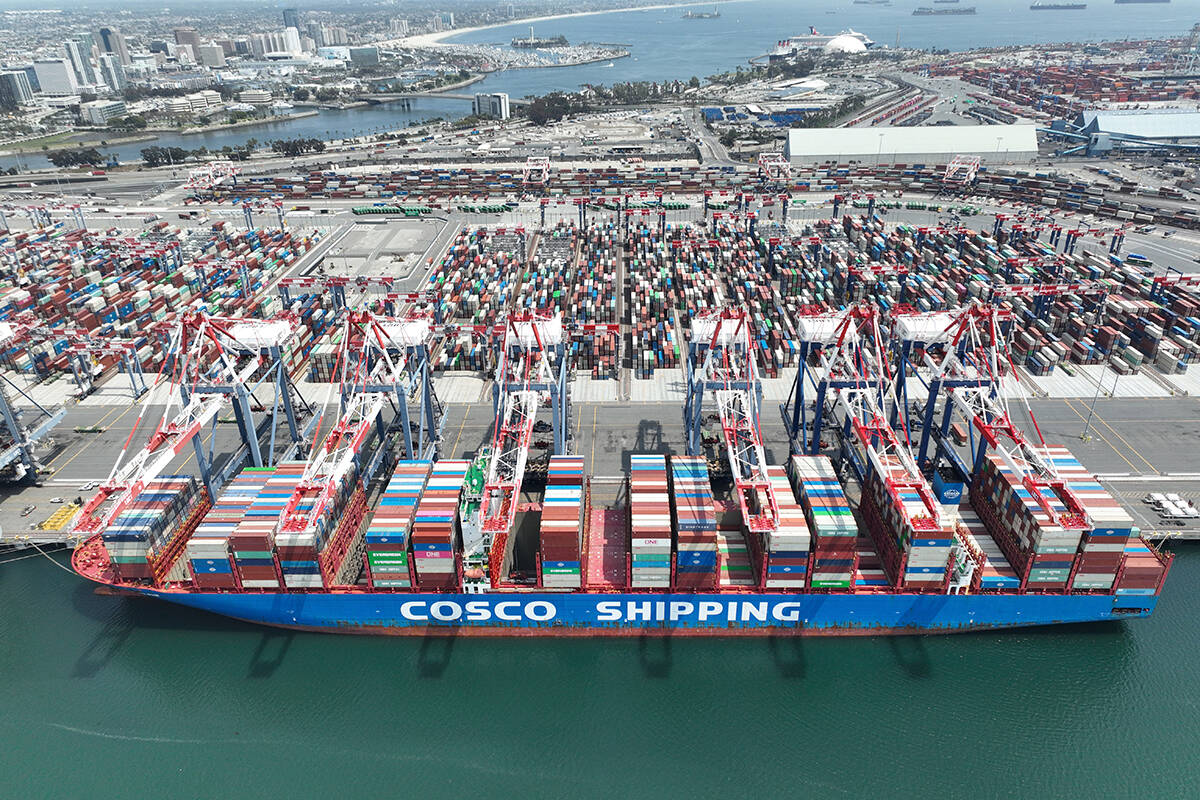The Red River Valley hog industry is worried by Ottawa’s sabre-rattling about U.S. corn.
Any attack on imported corn will hurt Manitoba hog producers and give an advantage to their competitors in the United States Midwest.
“We need to have access to global-priced grains,” said Dennis Kornelsen, grain buyer for the Manitoba swine company Hytek Ltd.
“If there is a duty applied on imported grains, it will drive up Canadian prices and increase our cost of production. In order for Canadian pork to be competitive (with American production) we need access to global grain prices.”
Read Also

U.S. softens fees on Chinese shipping
The U.S. starts charging new fees on Chinese ships on Oct. 14. What are the ramifications for their ag exports?
Ottawa’s threats to imported corn come as retaliation for the American government’s refusal to comply with a recent ruling against U.S. duties on Canadian softwood lumber.
The prairie hog industry may not be a major factor in the federal government’s analysis, but the imposition
of trade restrictions on U.S. corn will hurt producers, they say.
Feed grain prices are low because of big Canadian and U.S. crops in the past two years, but hog producers’ profitability is mainly based on the spread between the price they sell their pigs for and the price they had to pay for the feed to get the animals to slaughter weight.
If American producers can feed pigs for less than Canadian producers, they will eke out a better operating profit margin, which allows for lower prices that would further cut into Canadian profitability, Kornelsen said.
Farmers in eastern Manitoba are particularly vulnerable to any interruption of U.S. corn because they operate in a chronic feed deficit zone. Fusarium has infected farmland in the valley and most producers don’t attempt to grow cereals for hog feed.
Most of the feed barley and wheat is shipped in from western Manitoba and eastern Saskatchewan, while corn is brought in from the Dakotas and Minnesota.
Manitoba’s expanding corn crop of recent years has disappeared in the past two years as bad weather last summer wiped it out and floods and a late spring prevented planting for most of this year’s expected crop.
“The corn is pretty well non-existent this year,” said Kornelsen.”It makes it a very poor place to produce pigs if you have a duty that affects corn that comes in from the states.”
Kornelsen hoped the government backs off from its threats about U.S. corn.
“We’re the second largest hog producer in Canada and our need for feed for our livestock is huge,” he said.

















